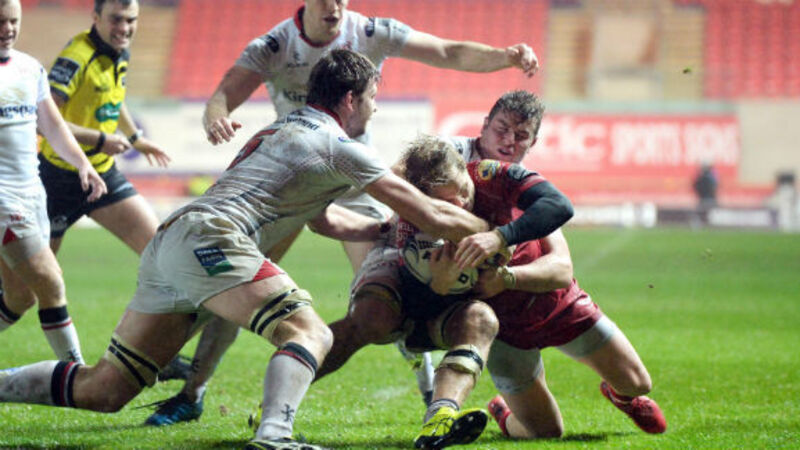Like it or not, the new tackle laws are here to stay

The flanker attempted to tackle Scarlets scrum-half Aled Davies in the same manner he had been doing all his career. With a low centre of gravity, the Scarlets No. 9 dipped low in an effort to make the try line from a few yards out and Reidy tried to wrap the ball with his hand.
Even under the new directive the maximum sanction, in my view, was a penalty. Italian referee Marius Mitrea, perhaps suffering from opening night fever, overreacted by awarding a penalty try and a yellow card to the Ulster No 8. If anyone deserved a sin binning from the incident it was Andrew Trimble, who followed Reidy into the contact area with a swinging arm.









